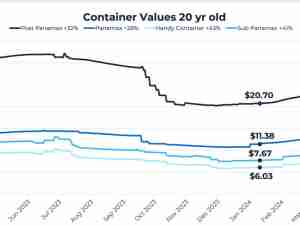U.S. Steel Seeking China Import Ban After Alleged Hacking
By: Sonja Elmquist | Apr 27 2016 at 05:10 AM | International Trade | Maritime
U.S. Steel Corp. is asking the U.S. government to ban unfairly traded Chinese steel imports, alleging producers stole the fruits of decades of research in a 2010 hacking attack.
If successful, the petition will block carbon and alloy steel produced in China from entering the U.S. Most critically, it will prevent those who allegedly stole U.S. Steel’s intellectual property from making billions of dollars from decades of research. The International Trade Commission has 30 days to decide whether to initiate a case.
“They’ve already tried to take over our present,” said Debbie Shon, an attorney at Quinn Emanuel in Washington, which is representing U.S. Steel in the petition. The case is intended to prevent them from “trying to capture our future.”
The allegations of intellectual property theft are groundless, China’s Commerce Ministry said in a statement on its website Wednesday. China hopes the U.S. authorities will reject U.S. Steel’s application and is seeking improved dialog between the nations’ steel companies, the ministry said. When the charges were announced two years ago, China’s government denied engaging in espionage and said it would suspend participation in a U.S.-China cyber working group.
U.S. Steel Chief Executive Officer Mario Longhi filed a petition under a section of the U.S. Tariff Act that hasn’t been used by a steel company since 1978 and protects domestic companies from patent infringement and theft of intellectual property. The Pittsburgh-based company also accuses the 11 Chinese steelmakers of anti-competitive pricing and unlawfully sending shipments through intermediate countries to skirt U.S. restrictions.
If successful, the complaint will block shipments from any company that used stolen information to produce steel, leaving the Chinese producers to prove that shipments are legal, according to the complaint filed with the ITC on Tuesday. Under other methods such as trade cases, domestic producers must demonstrate that shipments violate trade law.
So-called 337 cases, known for the section of the trade law they seek relief under, are more commonly used for medical devices and technology. This year, such cases have been filed regarding hoverboards, cervical collars and smart watches, for example.
By using this provision of trade law to seek relief, U.S. Steel hopes to persuade the commission to bar the targeted products from the U.S., providing more immediate relief than the tariffs and quotas afforded by trade cases or other emergency administrative remedies.
High Strength
In 2014, the Justice Department accused five Chinese military officials of stealing trade secrets through cyber-espionage, taking jobs and innovation from U.S. companies including U.S. Steel, Alcoa Inc., and Allegheny Technologies Inc. as well as the United Steelworkers union. U.S. Steel claims that in this attack, information representing decades of research in creating the next generation of high-strength steel was taken and reproduced in China.
“They couldn’t figure out how to move to the next level,” Shon said. “After the hack they were able to.”
The petition follows a surge in imported steel which domestic metal producers including U.S. Steel, Nucor Corp. and AK Steel Holding Corp. have called unfair and damaging. The Commerce Department has found that companies in countries including China, the biggest producer and consumer of steel, and Brazil, the biggest exporter of some products to the U.S., have dumped steel, imposing duties as high as 266 percent in the case of China.
Before working at Quinn Emanuel, Shon was vice president of international trade and global public policy at U.S. Steel.









